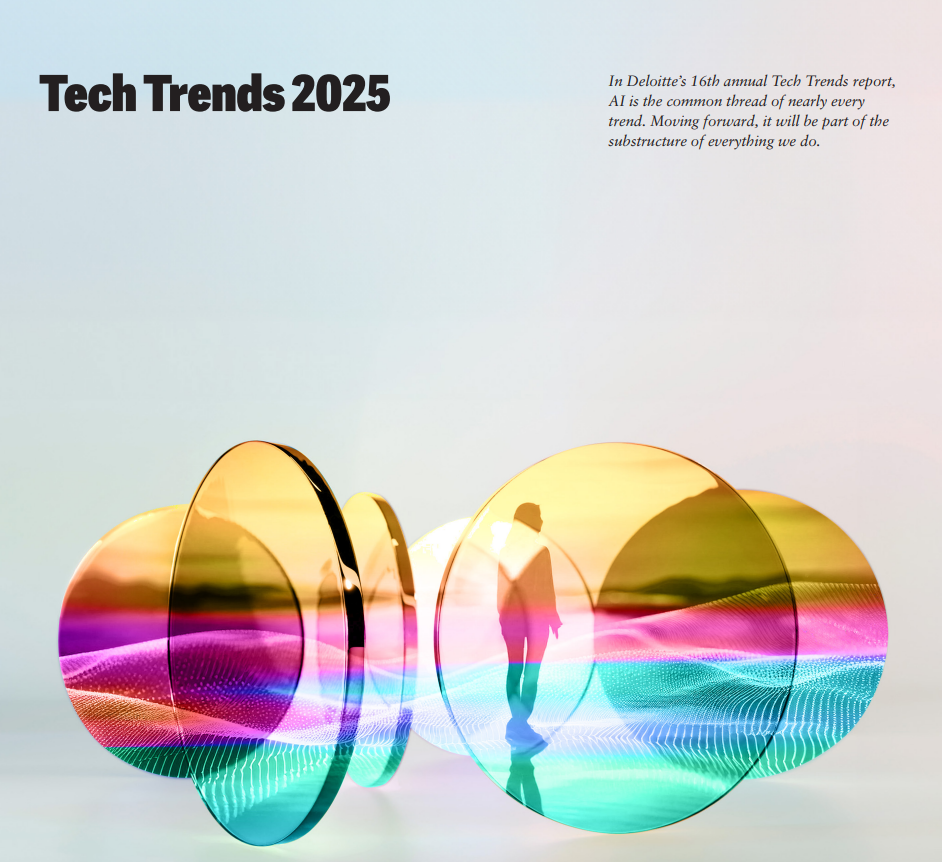The recently released “Tech Trends 2025” report by Deloitte outlines an AI-driven future for the global digital media industry. The report emphasizes that artificial intelligence is no longer just a supplementary tool for content recommendation but is evolving into the new foundational infrastructure of the entire industry. It will comprehensively reshape the sector across the entire value chain—from content production and user experience to operational efficiency and business models.
1. Revolution in Content Production: The Rise of the “AI Creative Factory,” Human-Machine Collaboration Becomes the New Norm
According to the report, the way digital media content is produced will undergo a fundamental transformation. Aligned with the trend of “AI industrialization,” media organizations will establish internal “AI creative factories.”
- Scalable Content Generation: Using generative AI (AIGC), media companies can rapidly produce standardized content such as news briefs, video subtitles, social media posts, and personalized ad copies. This will significantly free up human resources, allowing professionals to focus on higher-value tasks like in-depth investigations and creative planning.
- Augmented Creativity: In fields such as video editing, music composition, and visual effects, AI will act as a “super assistant” to creators, offering intelligent editing suggestions, style transfer, and scene generation, greatly enhancing creative efficiency and artistic expression. Human-AI collaborative creative processes will become the new industry standard.
2. Innovation in User Experience: From Passive Consumption to Immersive Interaction
The trend of “human-centric interaction” highlighted in Deloitte’s report will manifest as a comprehensive upgrade in the digital media user experience. AI will drive a shift from uniformity to highly personalized, contextual, and interactive experiences.
- Hyper-Personalized Content Streams: Future streaming platforms or news applications will go beyond “you may also like” recommendations. AI will deeply integrate real-time user emotions, contextual data (e.g., commuting, resting), and behavioral patterns to dynamically generate unique personalized channels tailored to immediate needs.
- Immersive and Interactive Storytelling: Combined with AR/VR technologies, AI can generate real-time plot branches, dialogue options, or virtual scenes, transforming users from “viewers” into “participants.” This will pave the way for interactive films, virtual concerts, and other forms of “immersive media.”
3. Intelligent Restructuring of Operations and Business Models
The trends of “data as a strategic asset” and “AI-optimized infrastructure” will profoundly impact the backend operations and business models of the digital media industry.
- Precision Advertising and Marketing: By establishing trusted data spaces, media companies can securely collaborate with advertisers while protecting user privacy. This enables more accurate advertising measurement (e.g., MMM) and attribution analysis, maximizing marketing ROI.
- Dynamic Pricing and Rights Management: AI can analyze factors such as content popularity and user viewing habits to implement dynamic pricing for subscription services. Meanwhile, blockchain combined with AI can be used for content copyright tracing, infringement monitoring, and automated rights transactions, protecting creators’ interests.
- Infrastructure Optimization: To handle high-traffic loads from 4K/8K streaming and VR broadcasts, AI-driven “intelligent computing” infrastructure can dynamically allocate cloud-edge resources, ensuring stable, low-latency video streams while effectively controlling bandwidth costs.
Industry Outlook and Challenges: A Strategic Turning Point
Deloitte’s report sends a clear message to the digital media industry: fully embracing AI is no longer an option but a necessity for survival. Media companies that proactively integrate AI into their core processes and build corresponding data capabilities and technical architectures will gain a dominant competitive edge.
However, this transformation also brings significant challenges related to technological trust and ethics. How can the authenticity and copyright of AI-generated content be ensured? How can algorithmic biases and “information cocoons” be avoided? How can user data be used responsibly? Addressing these issues will be critical for the healthy development of the industry.
In summary, “Tech Trends 2025” foresees an era of smarter, more efficient, and more immersive digital media. Yet, the path forward requires industry players to navigate with a sense of responsible innovation.

Leave a Reply